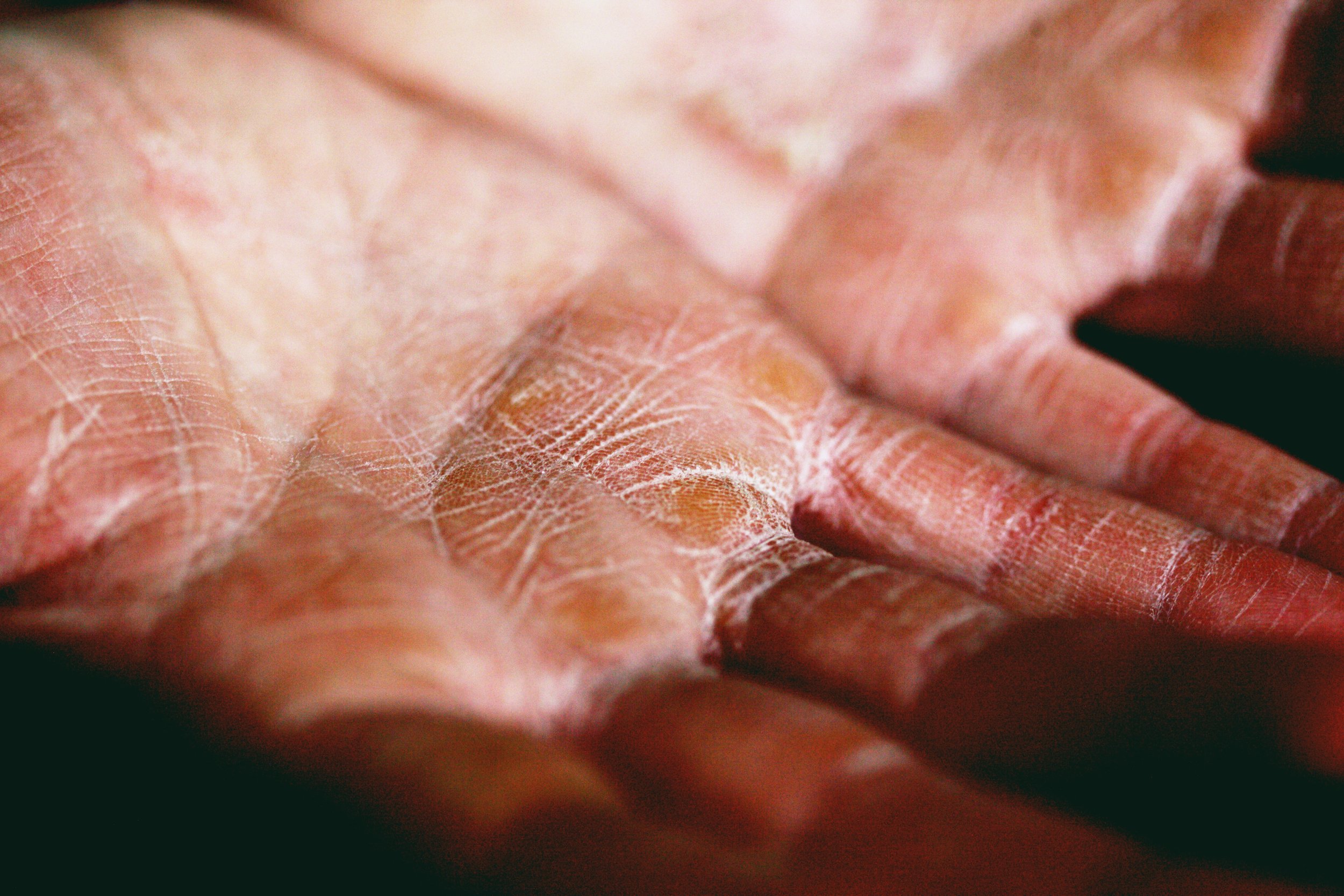Eczema Treatment and understanding Eczema
Stress and genetics work together and play out in a thousand different ways throughout our bodies. For most people, the root cause of skin concerns comes from an immune system response, environmental reactions, and high stress levels. Eczema is a great example of an inflammatory skin concern that could be caused by all of the above.
What Is Eczema?
Eczema, also referred to as atopic dermatitis, occurs when your immune system triggers and overreacts to environmental elements like allergens or other skin-irritating ingredients.
What Are The Root Causes Of Eczema?
It is estimated that more than 31 million people living in the US have some form of eczema. It can begin in childhood and ranges from extremely mild to severe cases. Many of the root causes of eczema can be attributed to the way our bodies react to external environmental factors and the rate at which it produces inflammation.
How To Identify Eczema On Your Skin
Being able to tell the difference between certain skin conditions can help you identify eczema versus poison ivy or a random rash. One of the most common symptoms is dry, itching skin which tends to be worse at night.
Patches of rust-ish color on your hands and wrists, chest, eyelids, feet, or inside where your elbows and knees bend are the most common symptoms. You may notice those patches on your scalp or notice small raised bumps. A telltale sign of eczema is if those bumps end up leaking fluid and scarring over after they’re scratched.
What Causes Eczema Flare-Ups?
Flare ups can come on due to textures, scents, long-term exposure to extreme temperatures or dry air, metals, diet and more. In some instances, fabric softeners or laundry detergents have chemical additives that can also lead to a slew of inflammation.
Flare ups can also come from a specific food that a person might have an allergy to unknowingly.
How To Approach Eczema Treatment
Since everybody’s genes and skin reactions are different, treatment may vary but still follows the same core routine. The best thing you can do for eczema flare-ups in the mainstream world is to talk to your doctor about the possible use of topical medication. But there are plenty of other steps you can take leading up to that treatment and throughout your journey.
How To Treat Eczema On Face
Treating eczema on your body can begin with home remedies and lifestyle adjustments. Make sure to cleanse and moisturize your face at least twice a day to eliminate grease, grime, and dirt.
Having a hydrated, moisturized face is essential to fighting eczema.
Products To Use On Eczema At Home
Having a consistent supply of at-home remedies to soothe itching and inflamed skin is truly a part of your self-care regimen. Taking allergy medication or anti-itch medication, when combined with a warm bath and oatmeal can make an enormous difference in your quality of life each day. Simple acts like using a humidifier and making sure to keep your entire body moisturized and hydrated can make all the difference. Mild soap and comfortable, cooling clothing can also alleviate flare-ups and symptoms.
Is There A Cure For Eczema?
Since eczema is considered a chronic condition there is no cure, but rather a series of adjustments and treatments that can help ward off flare-ups and symptoms.
How To Help Your Skin Fight Eczema
When you know what your skin needs, your body is better equipped to handle the physical and psychological stress that it endures. You can set your skin up for success by getting ahead of your symptoms and knowing exactly how to fight them. One of the best ways you can approach this is by having a skincare regimen that is consistent and focused on hydration and gentle exfoliation.
Preventative Measures To Take
Prevention means acknowledging that something is inevitable and choosing to engage in a way that keeps its impact as minimal as possible. Staying moisturized, having helpful tools to manage your stress levels, and using the proper cleansers and solvents are just a couple of things you can do immediately to help your skin.
What Skin Treatments Are Good For Eczema?
When it comes down to skincare treatments, sometimes an esthetician is the only person for the job. Since eczema treatment depends so heavily on being hydrated and staying moisturized, personalized facial treatments are some of your best options for recourse. Whether you utilize a purifying oxygen facial or a signature facial with personalized treatments from your esthetician, the race to stay hydrated is easier with support.
Professional Skincare Treatment At JE’DERM Skin Atelier
The truth is that people who are navigating the world of eczema have a lot on their plate. Sometimes, it’s nice to sit back, relax, and let the professionals step in to help. If you’re curious about which skincare treatment works best on eczema, schedule a consultation with us today.

